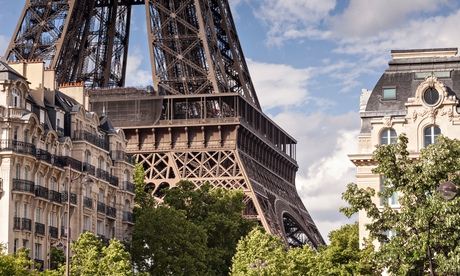
2015 promises two big milestones for sustainability: the launch of the new sustainable development goals (SDGs) in New York in Autumn, and the COP21 climate talks in Paris in December. All eyes are on these processes, which promise to shape the future of sustainable economic development and climate change.
For business, however, the outcomes in New York and Paris will constitute just the beginning of the story. It is no longer the case that grand international agreements set in motion binding regulations agreements for companies to simply comply with. Today change comes simultaneously from the top down, the middle out and the bottom up. As business gears up for a critical year, the wisest strategies will take all these elements into account.
Top down
Make no mistake, even though the SDGs and the UN Framework Convention on Climate Change (UNFCCC) won’t solve sustainable development and global warming, they are crucial enablers of progress and business leaders should make their voices heard.
In the coming year, individual businesses have a stake in encouraging governments to establish ambitious policies that create the right incentives for companies to shift to low-carbon models. Business for Social Responsibility has co-founded We Mean Business, a coalition of seven business organisations focused on sustainability that are are helping to advance just such policies.
It is our strong hope that the SDGs will provide clear direction on the key elements of widely shared prosperity and that the Paris summit will deliver new commitments to ensure global temperatures do not exceed the 2C mark.
Middle out
Business also has an opportunity to help construct solutions from the middle out. Waiting for national governments to agree is a fool’s game. Indeed, France is steering COP21 towards a network of commitments from multiple sources. Business has much to offer this model, and there are already many cases of companies making essential contributions to new models and frameworks that enable faster, deeper progress.
For example, dozens of companies are piloting integrated reporting as part of the International Integrated Reporting Committee. Several hundred companies have called for a price on carbon, in concert with the World Bank, with many also applying a price in their internal operations.
The UN Guiding Principles on Business and Human Rights has launched an informal network of companies and civil society organisations that are making that international agreement a reality through application and learning. These examples reflect a much-needed global laboratory that encourages innovation in new models – the kind of thing that would take governments much longer to establish.
Bottom up
Finally, the rise of the sharing economy and the circular economy are reframing the debate on sustainability. Innovation is leading to new companies, new collaborations and new ways of delivering value that decouple economic growth from the depletion of natural resources.
Plenty of industries have experienced this kind of disruption already – utilities, cars, hotels and hospitality – and these examples will only multiply, changing the face of every sector in years to come. Figuring out how to maximise the sustainability benefits of these changes is the design challenge of the 21st century.
As we enter 2015, the true test for any business is whether it is contributing to a just and sustainable world by using all of the resources at its disposal. This means engagement in traditional policy processes, joining diverse coalitions of action and applying the creative power of the private sector to come up with new ideas that meet the needs of a resource-constrained but thoroughly connected world.
Aron Cramer is president and CEO of Business for Social Responsibility (BSR)
Join the community of sustainability professionals and experts. Become a GSB member to get more stories like this direct to your inbox.

